|
Christianity has never been the mainstream of society. Those who strictly adhere to it have always been viewed as peculiar by the unbelieving world and even by many who profess to be Christians. Peter wrote to Christians in the Roman Empire who were suffering for the sake of their faith. Not only were they likely facing state persecution but they were being reviled, ridiculed, and accused by people around them. Peter exhorts them to be true to the faith and meekly live out a defense of the gospel. His words are just as timely today. In this broadcast of Let The Bible Speak, we consider some Strange Things About The Church.
3 Comments
Does it matter how we worship God? In this broadcast of Let the Bible Speak, we learn about two priests in the Old Testament who learned the answer the hard way. When the priests offered their sacrifices, a consuming fire confirmed that God received the offering. In the case of this careless and presumptuous pair, the fire fell and consumed them instead. Find out why it is dangerous to Play With Fire. Sign up for our free Bible correspondence course.
What does the church believe and why? Some will say this question is so broad that it would be difficult to provide a succinct answer. Others will want ask which church is under consideration. Yet, others might recite a creedal statement summarizing the set of beliefs held to by a denomination. This exposes one of the root problems in ‘Christendom’ today. As we learn in this broadcast of Let the Bible Speak, how we answer this question will largely determine how successful we are at restoring the ancient faith and being the church that Jesus planted in this world 2,000 years ago.
When Jesus came to the end of His time living on earth, He commissioned His disciples to take the good news to the world. He said that those who believed and obeyed their message would be saved. Saved from what? In our series "Preaching Jesus", we have seen that Jesus was the Son of God and Son of man, He is the Christ, He is Lord of all, and He is King. What was His mission as He fulfilled these titles and offices? In today's broadcast of Let the Bible Speak, we not only see that the suffering Son is now our Savior, but we learn why all of us so desperately need the salvation He offers.
Freedom is an exhilarating word to the ear of one who is burdened and oppressed. Freedom from political tyranny; freedom from addiction; freedom from debt are all phrases billions of people around the world have longed to hear. Almost 250 years ago, America gained independence from the tyranny of King George III and a nation was founded upon principles of personal liberty. The subsequent expression oft-stated and sung "Let Freedom Ring" intimates proclaims the desire to see freedom spread to every soul and every land. The Christian enjoys even greater freedom and should be even more zealous to spread this liberty to people around the world. Are you free or yet oppressed and in bondage?
Prompting His Olivet Discourse recorded in Matthew 24, Jesus was asked by His disciples: "What will be the sign of thy coming?" The question was in response to Jesus' prophecy that the temple of Jerusalem would be destroyed. The Lord said several things would come to pass before this took place including political turmoil and natural disasters. Was Jesus referring to the end times or to events that took place during the lifetime of His disciples? In this broadcast of Let the Bible Speak, we look at the context of the prophecy to discern if Jesus was pointing to an event in AD 70 or was He speaking of His second coming at the end of time?
Earthly life is a sacred trust but it is also a fragile and fleeting existence. Many are laying plans for a tomorrow that may never come. Such a realization should cause us to evaluate the real meaning of our time here on earth. In this broadcast of Let the Bible Speak, we look to the inspired author's introspective question "What Is Your Life?"
The leaders of ancient Judah were facing the threat of Assyrian invasion. They were making an unholy alliance with Egypt to protect them and arrogantly thought that they had averted the coming judgment of God. The prophet Isaiah warned them that judgment day was coming and when it did the storm would sweep away the "refuge of lies" in which they were hiding. Thus it will be in the Day of Judgment when the world will stand before Christ. In this broadcast of Let the Bible Speak, we ask: Are you living beneath a refuge of lies?
Jesus said "He that believeth and is baptized shall be saved" (Mark 16:16). Yet, just days earlier, He told a dying, penitent thief hanging on a cross: "Today shalt thou be with me in paradise". How are these passages reconciled? The New Testament plan of salvation including its mandate of water baptism is often rejected with the argument that the thief was saved in his final moments without being baptized. Do we know the thief was never baptized? If he was not, does his case of eleventh hour conversion negate the believing, penitent sinner's responsibility to be baptized for the remission of sins? In this broadcast of Let the Bible Speak, we learn about Baptism And The Thief On The Cross.
Do you feel overwhelmed by the prospect of faithfully living the Christian life? Many hesitate to begin because they don't believe they can finish. The Apostle Peter not only says that you can make your salvation sure but he provides the keys to doing so. By adding certain characteristics to our lives, one upon another, we can claim victory over sin and receive an abundant entrance into the heavenly kingdom in the after-a-while. In this broadcast of Let the Bible Speak, the scriptures assure that You Can Live The Christian Life!
|
Kevin PresleyWith Let The Bible Speak Archives
January 2023
|
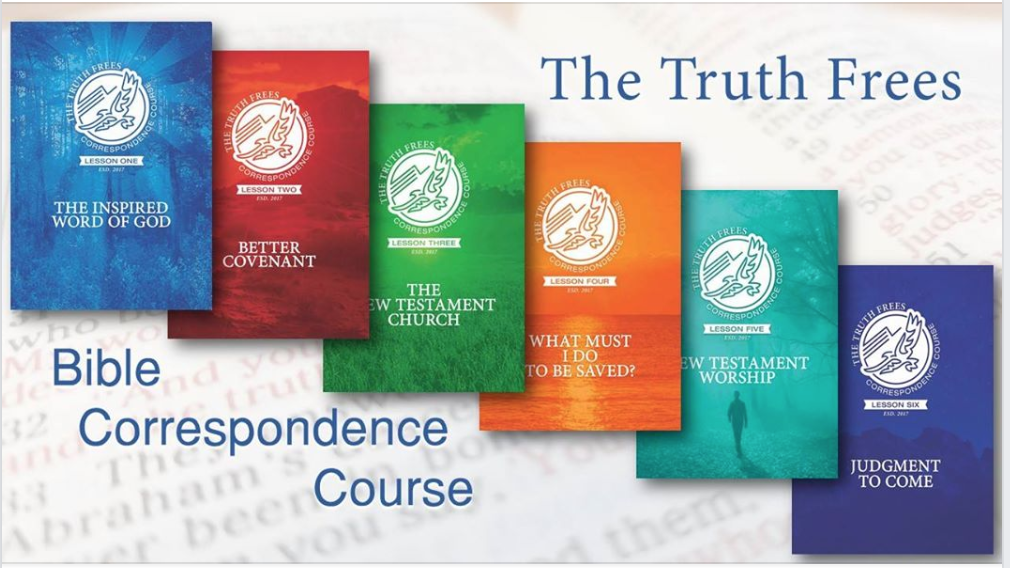
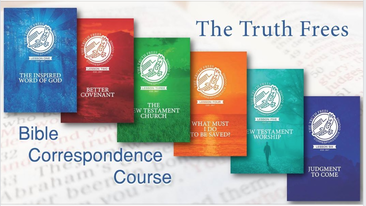

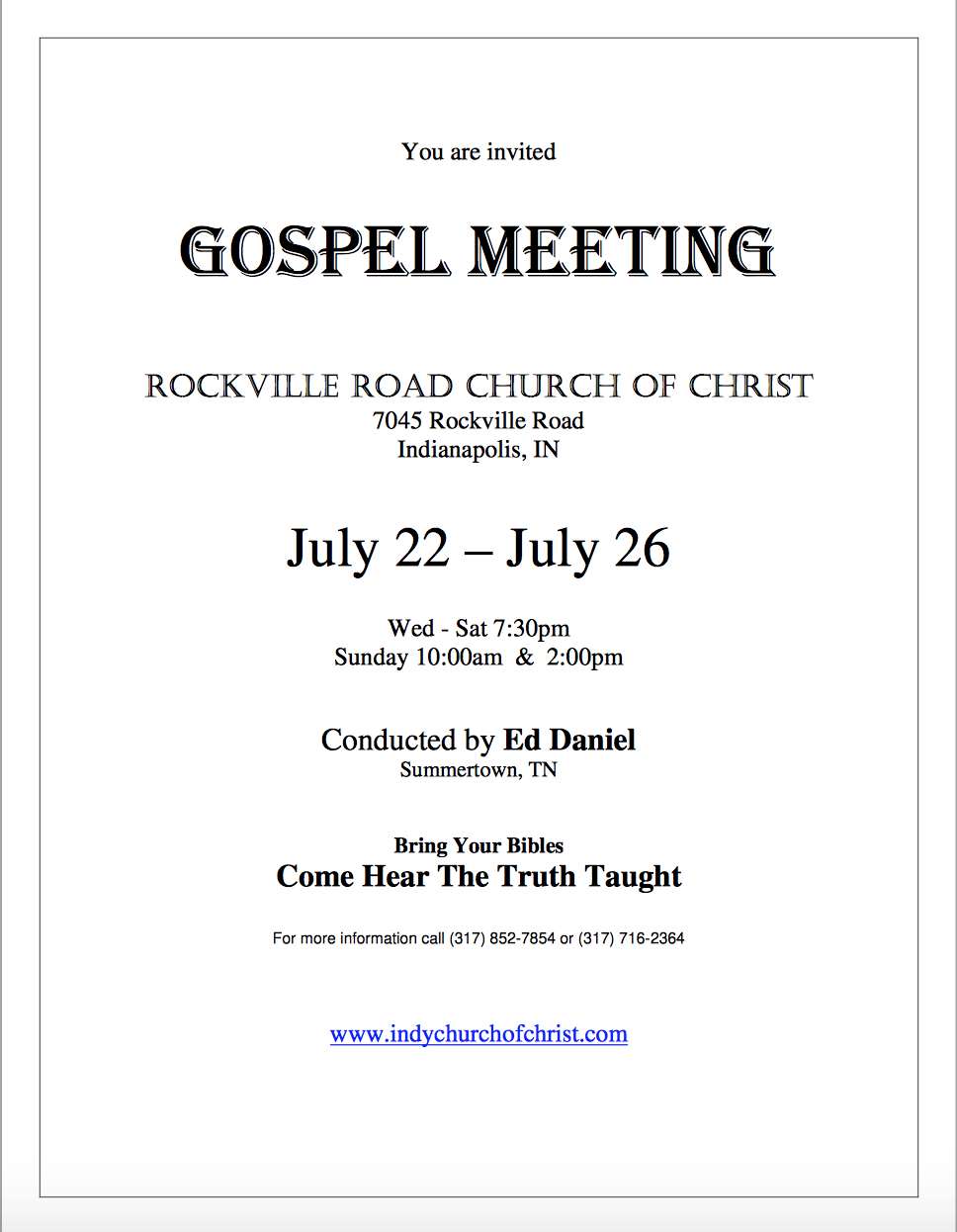
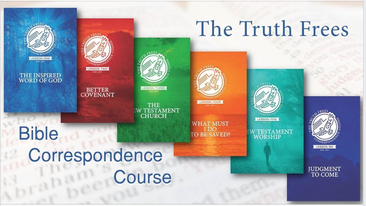
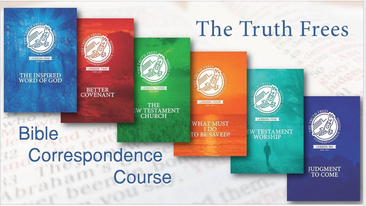

 RSS Feed
RSS Feed